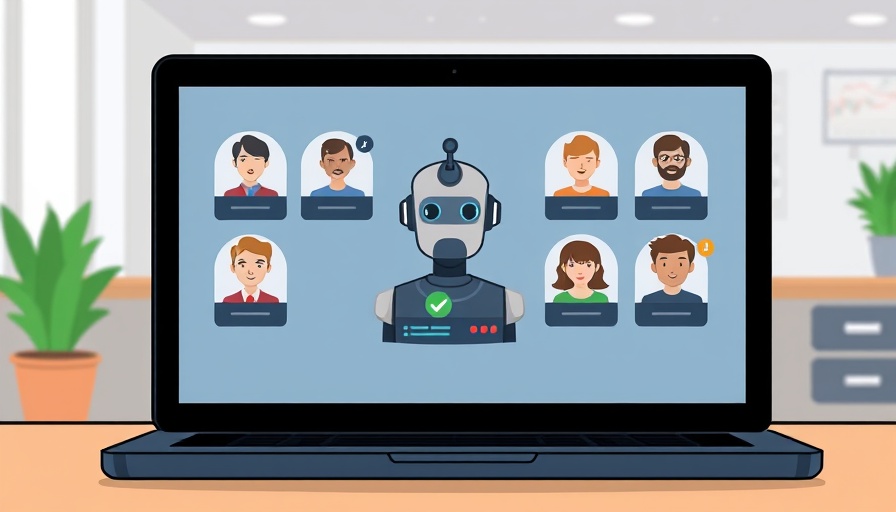
The Impact of AI on Young Tech Workers
Artificial intelligence is no longer just a buzzword; it's becoming a significant force reshaping job markets across the United States. According to a recent analysis by Goldman Sachs, the tech industry, which was rapidly growing, has begun to feel the effects of AI-driven unemployment, particularly among workers aged 20 to 30. Since the introduction of ChatGPT in November 2022, the unemployment rate for this demographic has surged nearly 3%, alarmingly outpacing the overall jobless rate in the nation.
Understanding the Numbers: Unemployment Trends
Goldman Sachs forecasts that AI could displace 6% to 7% of all American jobs within the next decade. This figure translates to millions of displaced workers, with young tech professionals vulnerable to these shifts. The firm's chief economist, Jan Hatzius, suggests that while the total unemployment rate may rise by only 0.5%, the implications for entry-level jobs could be more severe. As AI technologies mature, the entry-level positions are projected to be disproportionately impacted.
A Broader Impact on Industries
The influence of AI extends beyond mere job cuts. An alarming report by Challenger, Gray & Christmas revealed that AI has already been the driving force behind over 27,000 job losses in the private sector since 2023. Dario Amodei, CEO of the AI startup Anthropic, highlights that this trend could see half of all entry-level, white-collar jobs subject to replacement by AI technologies. The ramifications are likely to echo across diverse sectors including technology, law, and finance— industries where young professionals are typically eager to break into.
The Voices of Concern: Expert Predictions
The apprehensions among tech leaders regarding job displacement due to AI are anything but unfounded. Geoffrey Hinton, a prominent figure in AI research, has raised his voice, warning that AI could fundamentally alter the landscape of intellectual labor, replacing many roles with automation. Such predictions underscore a growing consensus that the advancement of AI could lead to not just job transformation, but a potential crisis in employment for young, aspiring professionals entering the workforce.
Future Career Strategies in a Changing Landscape
For young workers, adapting to this evolving job market requires proactive strategies. Diversifying skill sets, gaining experience in AI integration, and exploring roles that cannot be easily automated will be crucial for maintaining employability. Moreover, it’s essential to stay informed about emerging trends in technology and entrepreneurship, leveraging innovative avenues such as self-employment where demand might continue to grow.
Opportunities Amid the Challenges
Although AI presents clear challenges, it also offers opportunities for entrepreneurship and job creation. Cities like Detroit, Cleveland, and Buffalo are cultivating tech startups and innovative businesses that harness AI in unique ways. This entrepreneurial spirit could be the key to creating resilient job markets, particularly in locales that have seen declines in traditional employment.
As AI continues to disrupt industries, young workers must embrace this transformative period with an open mind, seeking avenues to not only survive but thrive in an AI-driven world.
In the face of these transformations, it’s crucial for young professionals to remain agile and informed. Exploring self-employment paths or engaging with local tech initiatives may offer the fresh start many seek. As the saying goes, in adversity lies opportunity.
 Add Row
Add Row  Add
Add 




Write A Comment